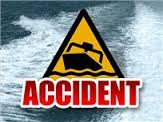Numerous Public Safety Bills Set To Go Into Effect On August 28th
A bunch of new State Laws regarding public safety are set to go into effect on the 28th of this month.
The Highway Patrol is helping residents better understand them before they begin.
They include information on records, medical examiner’s certificates, missing children, stealing, firearms in schools and property damage…among others.
You can read the full details below:
Several laws related to public safety go into effect August 28, 2023. A synopsis of sections related to public safety follows:
SENATE BILL 28
To read the truly agreed to and finally passed version of Senate Bill 28 in its entirety, follow this link:
https://senate.mo.gov/23info/pdf-bill/tat/SB28.pdf
PATROL RECORDS (Section 43.253 RSMo)
This bill allows for the dissemination of basic crash reports via an automated system while retaining the corresponding funding to support the automated system. Citizens will be able to electronically submit, pay, and receive the requested report via an electronic device. This workflow will greatly increase efficiency and decrease turnaround time to receive basic crash reports.
MISSOURI RAP BACK PROGRAM (Sections 43.539 & 43.540 RSMo)
Under current law, an entity participating in the Missouri Rap Back Program may request a person’s updated criminal history record if the person has previously had a Missouri and national criminal record review within the previous six years. This act repeals the six-year requirement.
Senate Bill 138
LOG TRUCK REQUIREMENTS
To read the truly agreed to and finally passed version of Senate Bill 138 in its entirety, follow this link:
https://senate.mo.gov/23info/pdf-bill/tat/SB138.pdf
This act modifies the requirements of log trucks to have a total weight of up to 109,600 pounds, instead of 105,000 pounds. (Section 304.180 RSMo)
SENATE BILL 167
MEDICAL EXAMINER’S CERTIFICATE
To read the truly agreed to and finally passed version of Senate Bill 167 in its entirety, follow this link:
https://senate.mo.gov/23info/pdf-bill/tat/SB167.pdf
This bill provides that medical examiner’s certificates for commercial driver’s licenses or instruction permits may be provided to the state by mail, fax, or email, in addition to the means currently available.
SENATE BILL 186
To read the truly agreed to and finally passed version of Senate Bill 186 in its entirety, follow this link:
https://senate.mo.gov/23info/pdf-bill/tat/SB186.pdf
MISSING CHILDREN (Sections 43.400, 43.401, & 210.795 RSMo)
This act modifies the definition of a “missing child” in the context of law enforcement searches of missing children to include persons under 18 years of age, foster children regardless of age, emancipated minors, homeless youth, or unaccompanied minors.
Any agency, placement provider, including the Children’s Division, parent, or guardian, with the care and custody of a child who is missing shall file a missing child complaint with the appropriate law enforcement agency within two hours of determining the child to be missing. The law enforcement agency shall immediately submit information on the missing child to the National Center for Missing and Exploited Children (NCMEC).
The law enforcement agency shall institute a proper investigation and search for the missing child and maintain contact with the agency or placement provider making the complaint. The missing child’s entry shall not be removed from any database or system until the child is found or the case is closed.
OFFENSE OF PROPERTY DAMAGE IN THE FIRST DEGREE (Sections 569.010 & 569.100)
This act adds to the offense of property damage in the first degree if such person knowingly damages, modifies, or destroys a teller machine or otherwise makes it inoperable. This offense is a class D felony unless committed for the purpose of executing any scheme or artifice to defraud or obtain any property, the value of which exceeds $750 or the damage to the teller machine exceeds $750, in which case it is a Class C felony. It shall be a Class B felony if committed for the purpose of obtaining the personal financial credentials of another person or if the person has committed a second or subsequent offense of damaging a teller machine.
OFFENSE OF STEALING (Section 570.010 & 570.030 RSMo)
This act adds that the offense of stealing shall be a class C felony if the property stolen is a teller machine or the contents of a teller machine including cash regardless of the value or amount stolen. Additionally, this act adds that the offense of stealing shall be a class E felony if the property stolen is a letter, post card, or package delivered by common carrier.
FIREARMS IN SCHOOLS (Section 571.030 RSMo)
This act provides that a person who is a school officer commissioned by the school board does not commit the offense of unlawful use of weapons when he or she brings a firearm into a school or on a school bus.
OFFENSE OF INTERFERENCE WITH TRANSPORTATION OF LIVESTOCK (Section 578.156 RSMo)
Under this act, a person commits the offense of interference with the transportation of livestock if the person knowingly:
(1) Stops or otherwise interferes with a motor vehicle transporting livestock;
(2) Provokes or disturbs livestock when the livestock is confined in a motor vehicle; or
(3) Puts or places a substance on the livestock that affects its health or use.
The offense of interference with the transportation of livestock is a class E felony for the first offense and a class C felony for any subsequent offense. The defendant may assert an affirmative defense of consent by proving by a preponderance of the evidence that he or she had the consent of the owner of the livestock. Additionally, this act shall not apply to law enforcement officers enforcing the law.
PEACE OFFICER BASIC TRAINING (Section 590.040 RSMo)
Under current law, the POST Commission sets a minimum number of basic training hours for licensure for peace officers of no lower than 470 hours and no higher than 600 with certain exceptions as provided in law. This act changes this requirement to be no lower than 600 hours.
DISCIPLINARY PROCEDURES FOR PEACE OFFICERS (Section 590.080 RSMo)
This act adds additional grounds for when the director of the Department of Public Safety shall discipline peace officers. This act provides that any peace officer shall be disciplined who:
• Is unable to perform the function of a peace officer with reasonable competency or reasonable safety;
• Has committed any crime or has been convicted in a criminal prosecution under any state laws, any federal laws, or any laws of another country, regardless if a sentence was imposed;
• Has committed any act that involves moral turpitude or a reckless disregard for the safety of the public;
• Has tested positive for a controlled substance without a valid prescription;
• Is subject to an order suspending or revoking a peace officer license from another state, territory, the federal government, or any peace officer licensing authority; or
• Has committed any act of gross misconduct indicating inability to function as a peace officer.
SENATE BILL 398
To read the truly agreed to and finally passed version of Senate Bill 398 in its entirety, follow this link:
https://senate.mo.gov/23info/pdf-bill/tat/SB398.pdf
COLLECTION OF SALES TAX BY MOTOR VEHICLE DEALERS (Sections 144.020 and 144.070 RSMo)
This act provides that following development of the Department of Revenue’s modernized system for vehicle titling and registration, driver licensing, and liens, licensed motor vehicle dealers shall collect and remit to DOR the sales tax due on all motor vehicles the dealer sells.
OPERATION OF MOTOR VEHICLES WHILE USING ELECTRONIC COMMUNICATION DEVICES THE HANDS FREE LAW (Sections 304.820 and 304.822 RSMo)
This act repeals the current prohibitions against operation of motor vehicles while using hand-held electronic wireless communications devices (Section 304.820 RSMo), as defined by law, and enacts different prohibitions in lieu thereof (Section 304.822 RSMo).
The act creates the “Siddens Bening Hands Free Law,” which prohibits a number of uses of electronic communication devices while operating motor vehicles, as detailed in the act. Among other restrictions, operators of motor vehicles can no longer physically hold or support, with any part of their body, an electronic communication device; write, send, or read any text-based communication; or make a phone call without the use of the hands-free or voice-operated feature or function.
The act specifies penalties for violations of these provisions, including enhanced penalties for repeat offenders, violations occurring in a work zone when workers are present, violations occurring in a school zone, and violations that are the proximate cause of property damage, personal injury, or death.
Law enforcement officers who stop a noncommercial motor vehicle for a violation of these provisions shall inform the operator of the operator’s right to decline a search of their device. No warrant shall be issued to confiscate or access an electronic communication device based on a violation of these provisions unless the violation results in serious injury or death.
Violations of these provisions shall not be used to establish probable cause for any other violation, and the provisions of the act shall be subject to racial bias reporting as required by law.
This act preempts local regulation of the use of electronic communication devices by the operators of vehicles.
Prior to January 1, 2025, a law enforcement officer who stops a noncommercial motor vehicle for a violation of these provisions shall not issue a citation for the violation, and shall only issue a warning.
No person shall be stopped, inspected, or detained solely for a violation of these provisions.
For a detailed list of the restrictions and exceptions to the Siddens Bening Hands Free law, refer to the Senate Bill 398 link above.



